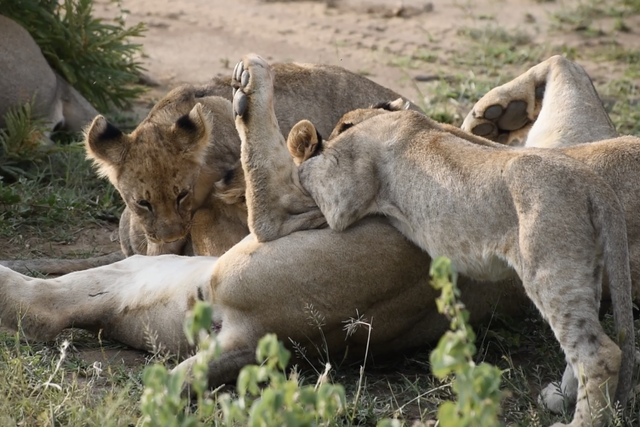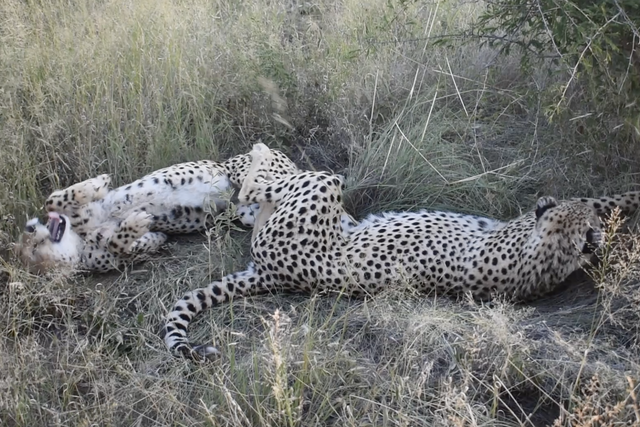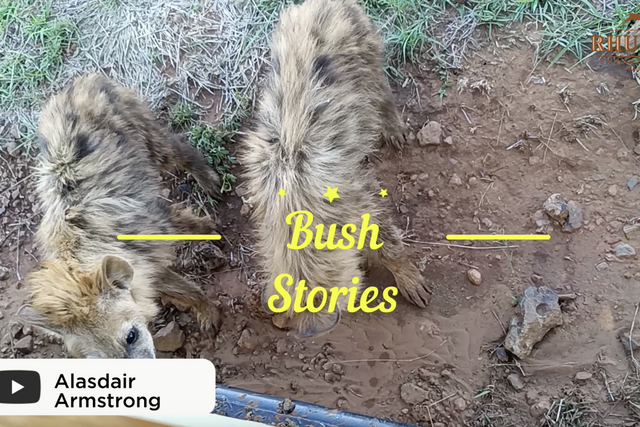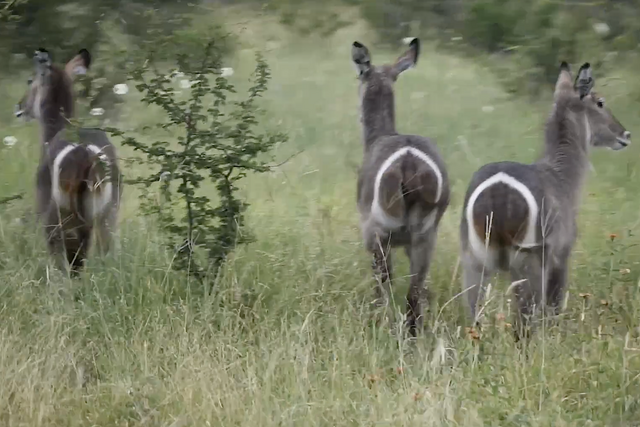This 7th part of our Baby Animals in Madikwe Series is about a Baby Wildebeest, Baby Black-backed Jackal and a Baby Impala.
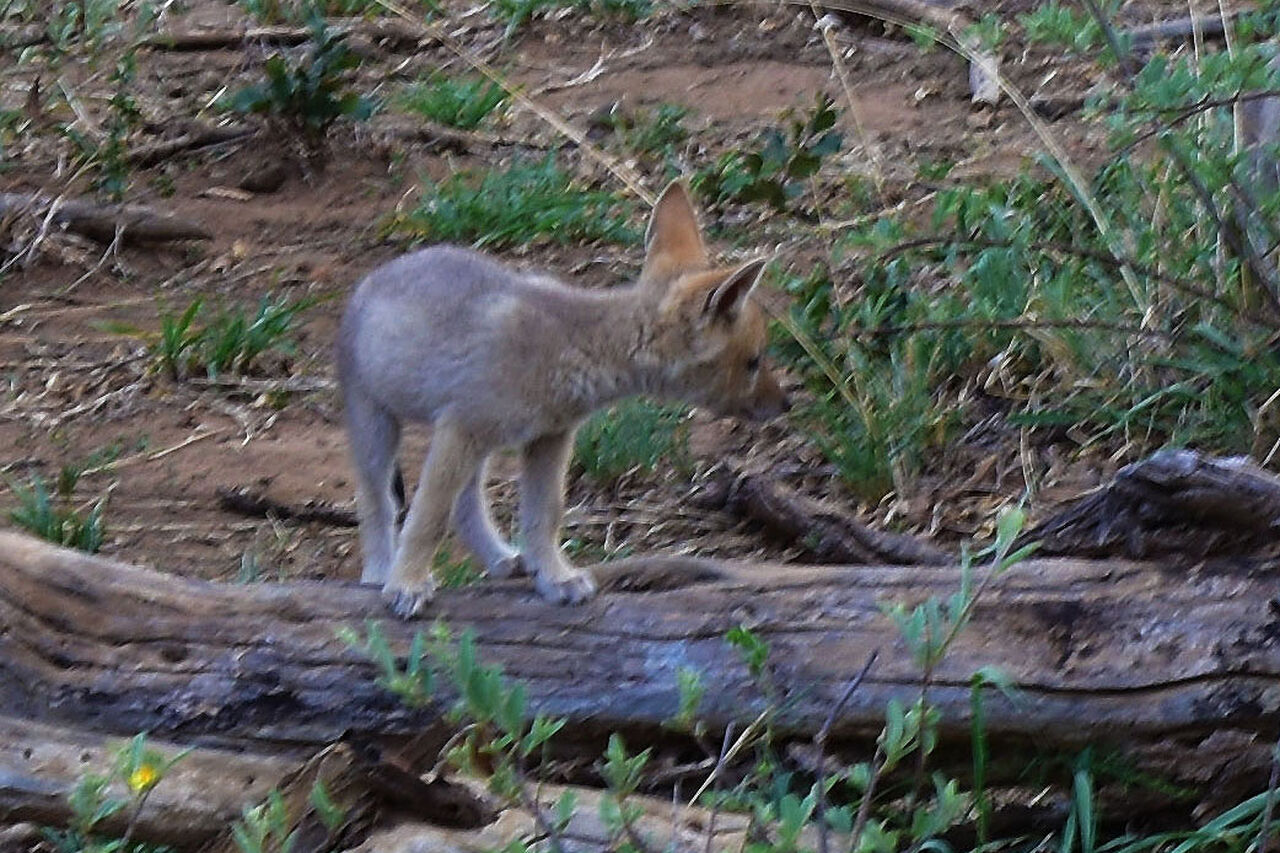
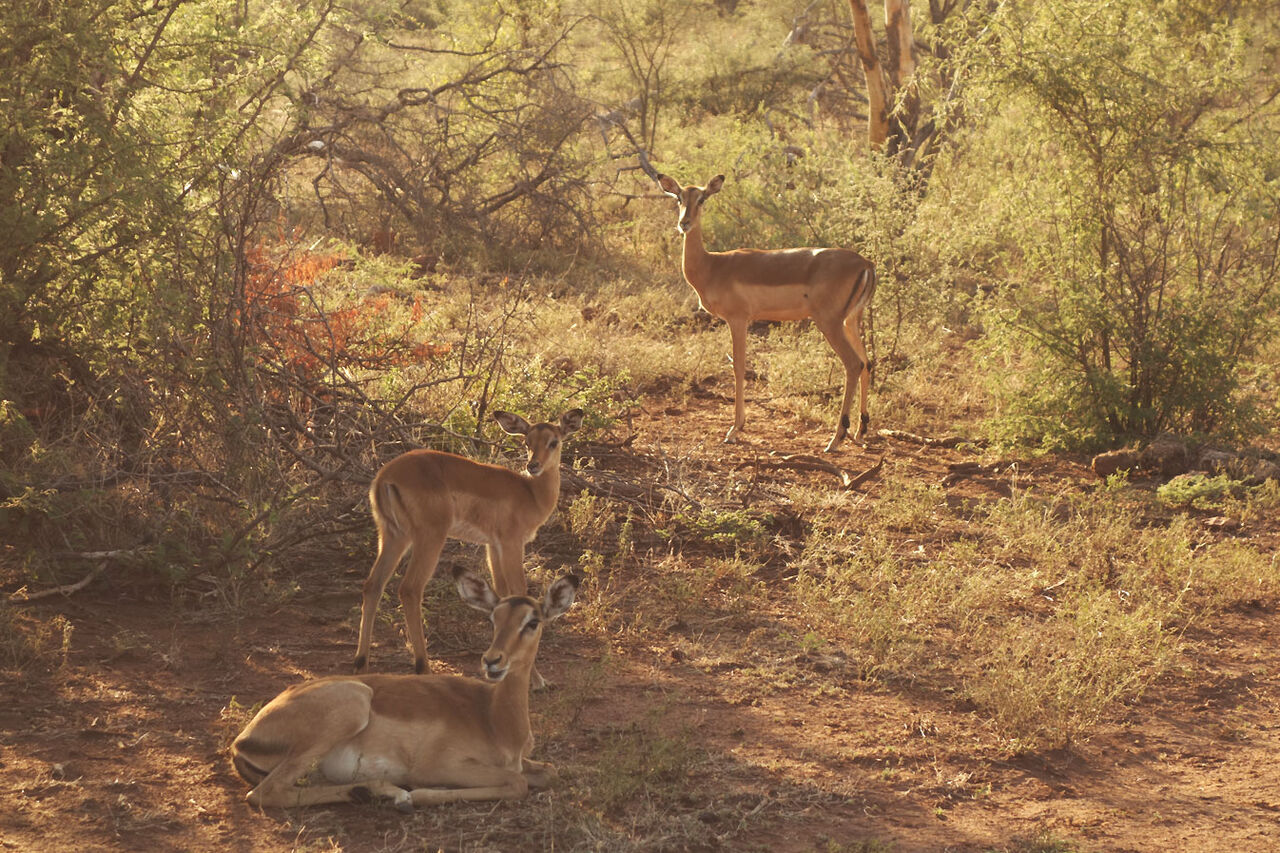
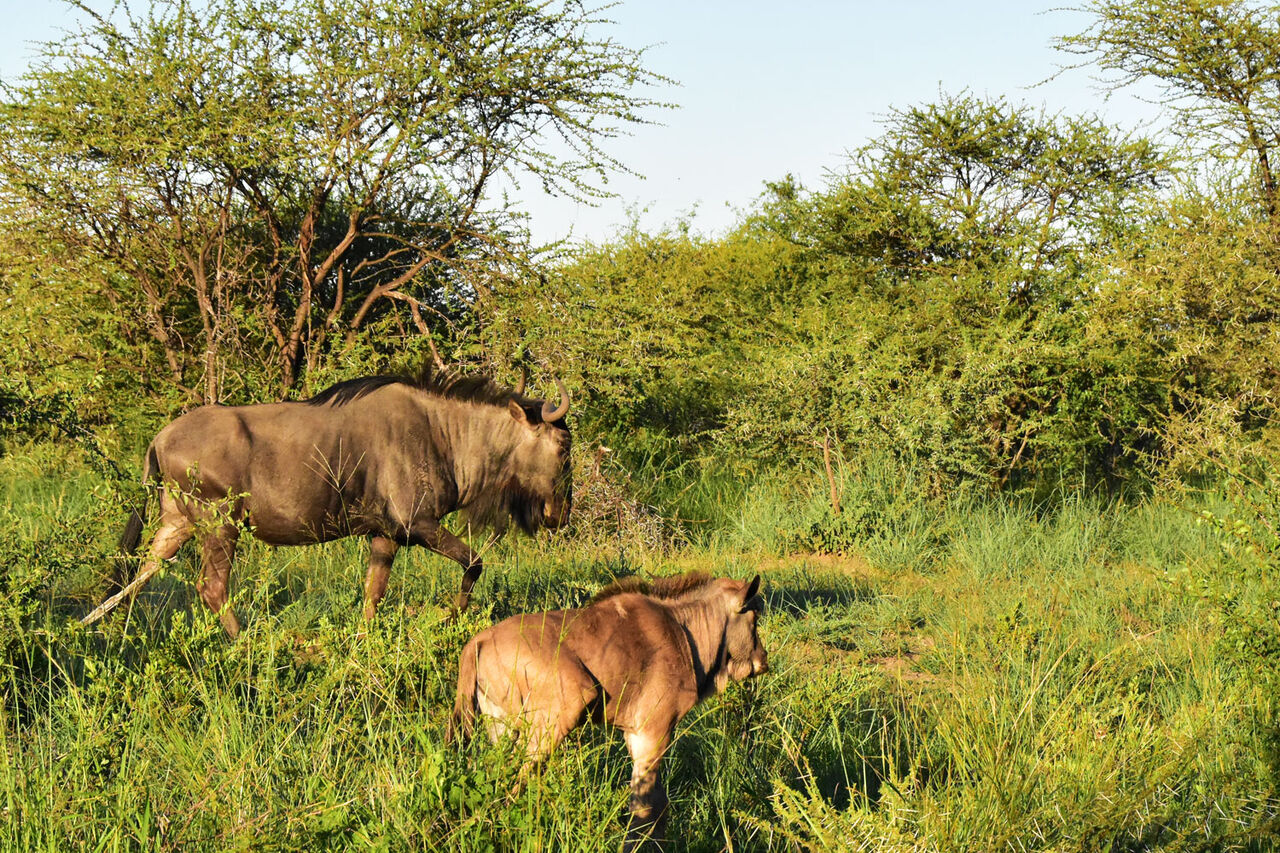
Baby Wildebeest / Gnu
Blue Wildebeests / Gnus can often be seen together with Zebras- their best buddies. They love the open savannas of Africa.
Mating season for Wildebeests starts around May and July and calves are born between January and March.
Gestation Period Wildebeest: 8 - 8,5 months
Female Gnus are giving birth in the middle of the herd. The Wildebeest calves are able to walk as soon as they are born. They are suckling for about 4 months but are also starting to eat grass about 10 days after their birth. The main predator of the calves is the Spotted Hyena. Wildebeests can live up to 15-20 years in the Wild.
Baby Black-backed Jackal
Black-backed Jackals are native to Southern and Eastern Africa. I spotted my first Black-backed Jackal Baby on my very first game drive with Rhulani Safari Lodge in Madikwe, South Africa. The little Baby Jackal was trying to balance on a fallen tree.
I saw other Blacked-backed Jackals here and then near the Western Airstrip of Madikwe. Recently, one of them also joined us for our Sundowner drinks.
Gestation Period Black-backed Jackal: 2 months
The mating season for Black-backed Jackals is from end of May to August. A litter usually consists of 1- 5 pubs but can also go up to 9. They are born blind. After about 10 days they start opening their eyes. When they are about six months old, they start hunting on their own.
Baby Impalas in Madikwe
You will definitely be able to see Impalas on your safari in Madikwe. These medium-sized Antilopes are very common. In the evening, their eyes are shining in the spotlight.
Impalas are very successful as they have very intense senses and are mixed feeders, meaning, they are able to adapt their diet during a drought or rainy season. Impalas have a very high pregnancy rate and very high survival rate.
Gestation Period Impala: 6-7 months
A single Impala calf is born, which can stand up on its feet within 15 minutes. It is suckling for about 4-6 months.
